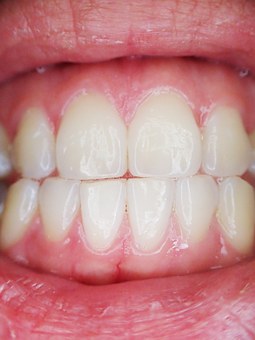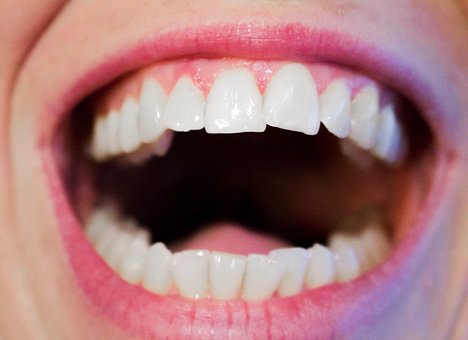Root canal therapy is often a misunderstood dental procedure that plays a crucial role in saving teeth and preventing tooth loss. Many people are apprehensive about undergoing a root canal, fearing pain or complications, but modern dentistry has significantly improved this procedure, making it a safe and effective solution for preserving a natural tooth. Rather than opting for tooth extraction, root canal therapy can help maintain the integrity of your smile and prevent future oral health issues. In this article, we’ll explore why root canal therapy is important for preventing tooth loss and how it benefits your overall dental health.
Understanding the Purpose of Root Canal Therapy
Root canal therapy, also known as endodontic treatment, is designed to treat the interior of a tooth when the pulp becomes infected or damaged. The dental pulp is the innermost part of the tooth, consisting of nerves, blood vessels, and connective tissue. When the pulp becomes infected due to deep decay, a crack in the tooth, or trauma, it can cause severe pain and inflammation. If left untreated, the infection can spread, leading to abscesses, bone loss, and eventually the need for tooth extraction.
During a root canal procedure, a dentist or endodontist removes the infected or damaged pulp, cleans and disinfects the canals, and fills them with a biocompatible material. This process eliminates the infection and preserves the tooth structure, allowing the tooth to continue functioning like any other natural tooth.
Why Root Canal Therapy is Essential for Preventing Tooth Loss
- Saving the Natural Tooth
One of the primary goals of root canal therapy is to save the natural tooth. Losing a tooth can have long-term consequences for your oral health, including shifting of surrounding teeth, bone loss, and difficulty chewing. By preserving the tooth with a root canal, you maintain the natural alignment of your teeth and the integrity of your jawbone. A natural tooth is always preferable to a dental prosthetic because it preserves the original tooth’s strength and structure.
- Avoiding Tooth Extraction
While tooth extraction may seem like a quick solution to a painful or infected tooth, it often leads to further complications down the road. When a tooth is extracted, the surrounding teeth may shift into the gap, which can cause misalignment, bite issues, and increased wear on adjacent teeth. Additionally, extraction requires either a dental implant, bridge, or denture to replace the missing tooth, which can be more costly and time-consuming than a root canal. Root canal therapy allows you to keep your natural tooth and avoid these potential issues.
- Preventing Bone Loss
One of the lesser-known consequences of tooth loss is the loss of bone density in the jaw. When a tooth is removed, the jawbone that once supported the tooth root begins to deteriorate because it is no longer stimulated by chewing. Over time, this can lead to a weakened jawbone, changes in facial structure, and difficulty with future dental procedures like implants. By saving the tooth with root canal therapy, you prevent bone loss and maintain the strength and health of your jaw.
- Relieving Pain and Infection
When a tooth is severely infected, it can cause significant pain and discomfort. The infection can also spread to nearby tissues, leading to swelling, abscesses, and more serious health problems if left untreated. Root canal therapy effectively removes the source of infection, providing relief from pain and preventing the spread of bacteria to other areas of the mouth or body. By treating the infection early with a root canal, you avoid the need for more invasive treatments or emergency dental care in the future.
- Restoring Normal Function
A damaged or infected tooth can make it difficult to chew, speak, or perform daily oral functions comfortably. Root canal therapy restores the function of the tooth, allowing you to eat and speak without discomfort. The treated tooth, once restored with a crown or filling, can continue to function like a healthy, natural tooth for many years. This not only improves your quality of life but also helps you maintain a healthy diet and proper oral hygiene.
The Long-Term Benefits of Root Canal Therapy
Root canal therapy not only addresses immediate dental issues but also offers long-term benefits for your oral health. By preventing tooth loss and preserving the natural tooth, you can maintain a healthy, functional smile. The long-term benefits of root canal therapy include:
- Preserving Dental Aesthetics: A natural tooth looks and feels more like your own, and with a well-done root canal, no one will be able to tell that the tooth has been treated. Keeping your natural tooth helps maintain the appearance of your smile without the need for prosthetics.
- Improving Oral Health: By removing the source of infection, root canal therapy helps prevent the spread of bacteria to other teeth and gums, reducing the risk of further dental problems. Maintaining a healthy mouth contributes to overall health and well-being.
- Cost-Effective in the Long Run: While root canal therapy may seem like a significant investment, it is often more cost-effective in the long term than extraction and replacement with a dental prosthesis. Dental implants, bridges, or dentures typically require more time, effort, and money to maintain over the years.
- Longevity: A tooth that has undergone root canal therapy and is properly restored with a crown or filling can last a lifetime with good oral hygiene and regular dental check-ups. This durability makes it an excellent choice for patients seeking a long-term solution to their dental problems.
Conclusion
Root canal therapy is a vital procedure for preventing tooth loss and maintaining a healthy, functional smile. By addressing infections and damage within the tooth, root canal therapy saves the natural tooth, prevents complications like bone loss and shifting teeth, and restores the tooth’s function. While some may fear the procedure, modern advancements in dental technology have made root canals more comfortable and efficient than ever before.
Rather than opting for extraction, root canal therapy offers a long-lasting, cost-effective solution that preserves your natural tooth and prevents further dental issues. If you are experiencing pain or signs of infection, don’t delay seeking treatment—root canal therapy may be the key to saving your tooth and maintaining your overall oral health.



